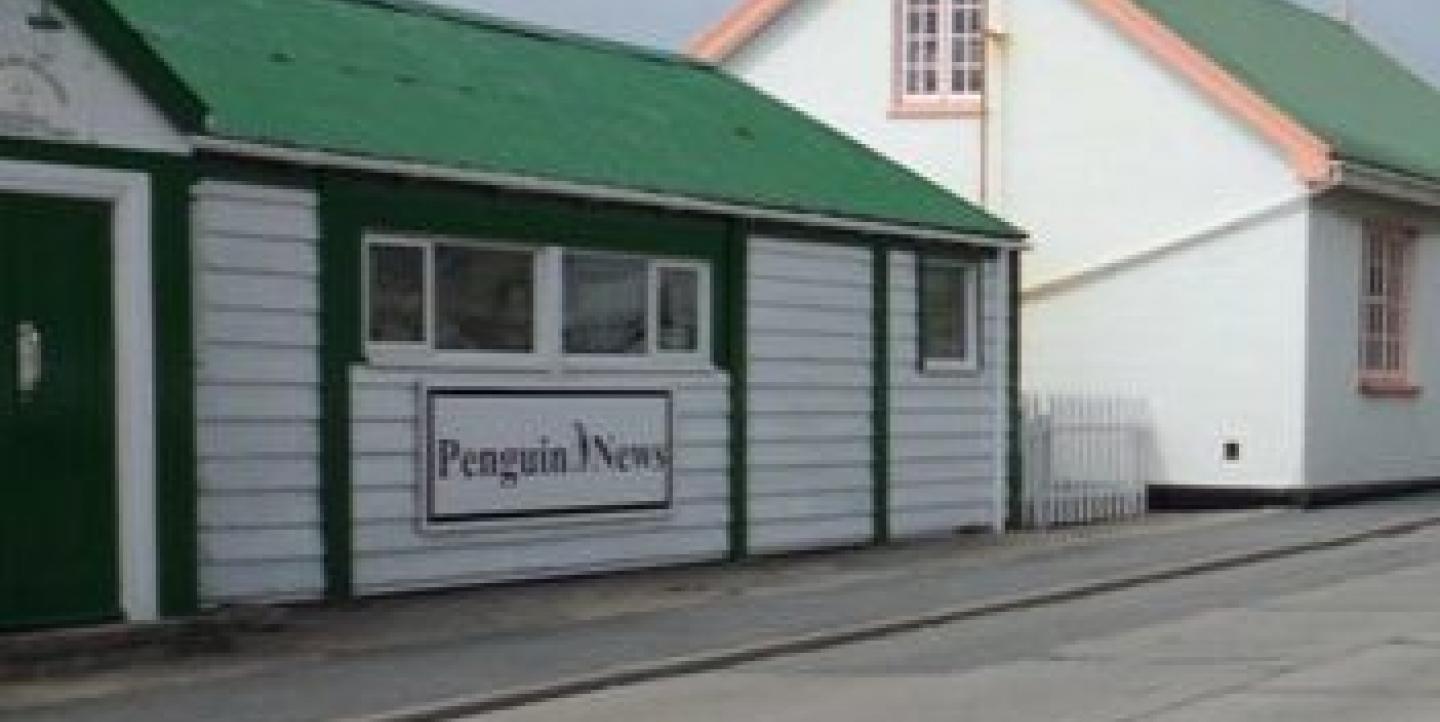Some 3,000 people now share an archipelago near the Antarctic that has been at the center of an international tug-of-war since the 1700s.
Called "a land at the end of the world," the Falkland Islands, or Islas Malvinas in Spanish, sit in the South Atlantic Ocean about 300 miles off the coast of South America. They've been claimed, at various times, by the French, the Spanish, and most durably, the British.
More recently, in 1982, they were invaded by Argentina and are still hotly contended.
"Kelpers,” as inhabitants of the British-controlled isles are known, are isolated but have many stories to tell. Every Thursday, Penguin News highlights local goings-on.
IJNet interviewed editor Lisa Watson about how she reports in a place where everyone knows each other and how social media play a vital part in getting the word out.
- IJNet: What kind of news do you cover?
- Lisa Watson: Any news relating to the Falkland Islands, from weddings and local events to Falklands politics, fishing, tourism and agricultural news. We do not include international news generally as Islanders have access to TV/Internet.
- IJNet: How hard is it to cover stories in a place where everyone knows each other?
- LW: It probably causes us to be self-regulating to a higher degree than papers providing news for a larger community. However, we deal very much in facts and avoid sensationalism. At the same time, we see it as our role to challenge the Falkland Islands Government when we feel it necessary, as the Falklands government does not have an ‘opposition’ party to undertake that role.
- IJNet: What's the key to making a local newspaper sustainable?
- LW: It’s a balance of providing lighthearted coverage of local events and ensuring we miss nothing. We attend government committee meetings, public meetings and try to include articles on all aspects of Falklands main industries every week.
- IJNet: What kind of feedback do you get from the community?
- LW: The Penguin News is very important to the community – often if readers have heard various versions of a story or rumor they will reserve judgement until they hear our (factual) version. It also serves as a historic document recording daily life in the Islands.
However, being the only paper in the Islands we have to serve a diverse readership – those who dislike politics might complain there is “too much politics,” but another reader who enjoys the more serious side might complain “there isn’t enough” – it’s a delicate balance.
- IJNet: You frequently use Twitter to connect with readers and recommend the islands as a tourist destination. How does it fit in with the paper?
- LW: I use Twitter as a work tool to direct people to the Penguin News website. Social network sites are an excellent way to get the message of the Falklands beyond our shores and to 'real' people.
It's useful to understand our way of life and the problems we face, but also to understand we have our own identity as a population. We are not a piece of ‘imperialist Britain’ as Argentina tries to portray us. We have our own culture, our own elected government and we pave our own way.

